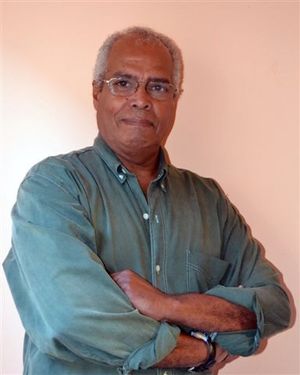But now my eyes see you

Faustino de Jesús Zamora Vargas
SUMMARY: The author reflects on their childhood in Cuba and the prevalence of religious beliefs in their family and community, but how it was suppressed during the atheistic era. However, Christianity has since grown in Cuba and now over 10% of the population is faithful and organized. The author invites readers to pray for Cuba and for those who have yet to see Christ.
Many of us were raised in religious settings in our homes. In Cuba there is talk of a popular religiosity. That concoction of religions where the traditional came from Africa and the animism arrived from France by the hand of Allan Cardec, merges with the apostolic-Roman creed and is much more complicated with the insertion of sects and secret societies - also African inheritances and European -. In my childhood the alphabet began with the cross of Christ. The children said Christ, A, B, C, D ... and so on until we reached Z. Christ first and then the letters. As in all of Latin America, the average Cuban was religious. When we visited our grandparents, it was almost obligatory to ask the elderly for their blessing before leaving. -The blessing grandmother-. -God bless you-. Family environments were for a long time marked by that type of religiosity, but the Bible was never talked about and God turned out to be a good man who cared for people, but he was nowhere to be seen, but on the altars made by the hands of mens. It appeared at Christmas in the form of a little boy, but the rest of the year it disappeared. Any coincidence with reality and real life in your country or in another that you know? That's how I remember it and this is very personal.
Then the atheistic airs came to my land and things got ugly. Believing in God was an offense to materialism and its gods (Marx, Engels, Lenin). If you said that you believed in something out of this context, you were condemned to a miserable life, you were socially excluded. A cry like a war broke into the lives of Cubans, it was like a warning to everyone: "religion is the opium of the people", and signed a certain Vladimir Ilyich Lenin, a Russian leader who appeared in textbooks as a god embracing the workers and children with a tender and compassionate gaze.
Then the atheistic airs came to my land and things got ugly. Believing in God was an offense to materialism and its gods (Marx, Engels, Lenin). If you said that you believed in something out of this context, you were condemned to a miserable life, you were socially excluded. A cry like a war broke into the lives of Cubans, it was like a warning to everyone: "religion is the opium of the people", and signed a certain Vladimir Ilyich Lenin, a Russian leader who appeared in textbooks as a god embracing the workers and children with a tender and compassionate gaze.

